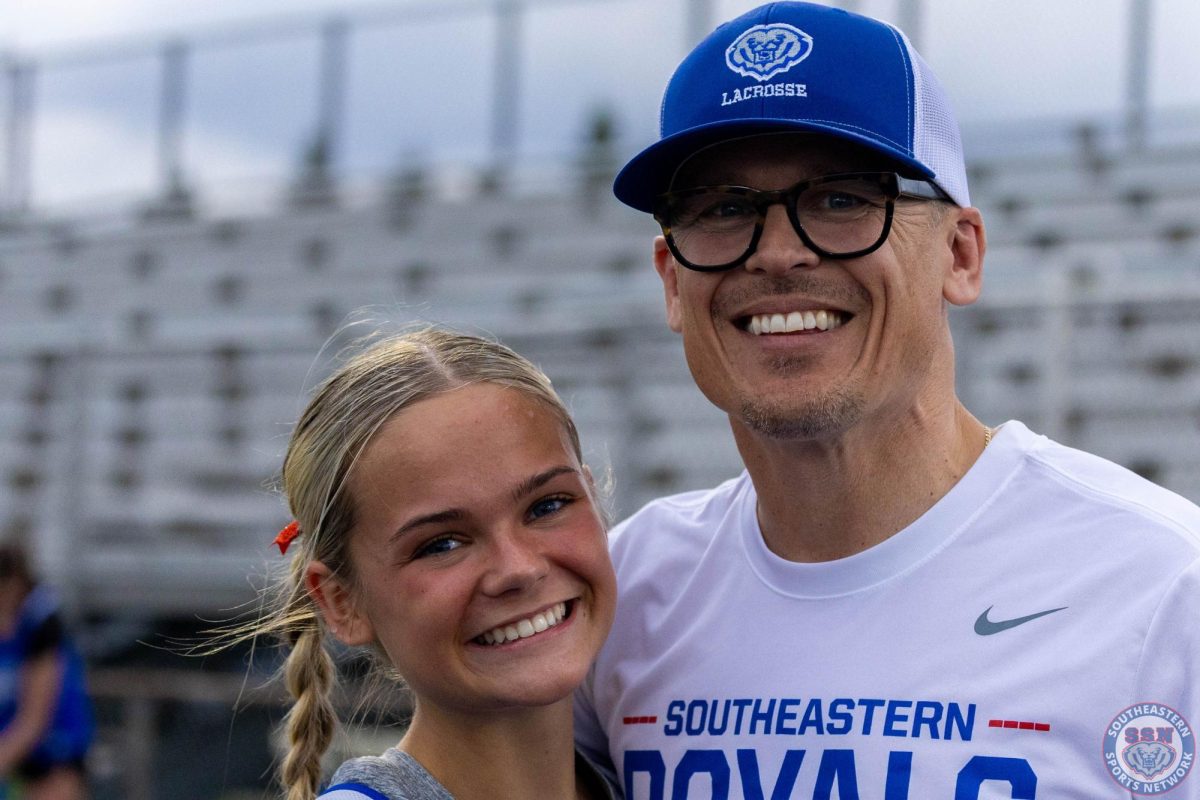
Emilie Dale
“Honestly, I think it’s still something a lot of players don’t talk about. We act like everything’s fine, even when it’s not, because we don’t want to seem dramatic or weak,” Edie Fisher said when asked if mental health is truly addressed enough in high school sports.
Fisher’s words echo a quiet truth many female athletes experience but rarely speak aloud. Beneath the high scoring games lies a quiet struggle. The pressure to peform, to lead, and to appear mentally tough even when they’re not.
“There’s so much pressure. Coaches want you to be your best, teammates count on you, and social media makes it look like everyone else is doing amazing all the time,” Fisher said.
Fisher’s words truly highlight a hidden truth many young athletes carry silently: the pressure to meet expectations from all directions. What often is overlooked is how this constant drive to appear composed and successful while in games slowy starts to chip away at players’ well-being. Behind every goal or stand-out performance might be a girl battling anxiety, self-doubt, or burnout.
For some athletes, this pressure becomes extremely raised during big transitions—like stepping up to play at a higher level, where confidence can be deeply affected.
“Moving up from JV to varsity this season was honestly a big step for me,” Alison Funk said. “It really challenged me mentally and I started to doubt myself as a player. As I’m starting to improve my confidence, I realize it’s okay to not be perfect, and my mindset can change everything.”
As players start recognizing their own challenges, it starts to become clear that individual mindset isn’t the only key piece. The environment around them truly matters as well. Feeling supported by thier team can truly make a difference in how open an athlete feels when it comes to thier mental health.
“I think our team supports each other enough that we can openly talk about mental health, and I think our team is a safe space for sure,” Funk said. ” However, we don’t hear about it enough which is why we should spend more time recognizing it.”
While teams may help by offering a sense of support, the silence about mental health still lingers. Often not from a lack of care but from a lack of comfort in knowing how to address those struggles. That’s why many players believe the next step needs to be action, not just awareness.
Wheter its regular check ins, team led conversations, or simply reminding each other that it’s okay to not be okay, athletes are ready for a culture shift- and they’re starting with each other.
” I’ve learned that balance is very important. I remind myself that one mistake doesn’t define me as a player,” Funk said.